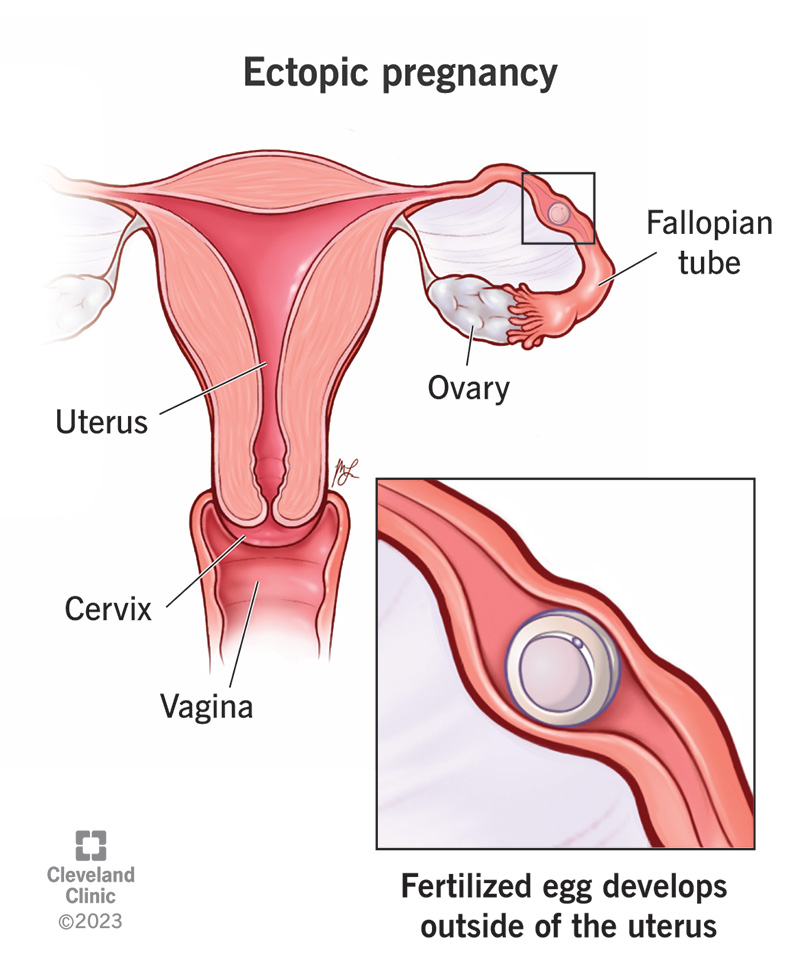Tubal Pregnancy: A Comprehensive Overview
Introduction
Tubal pregnancy, also known as ectopic pregnancy, occurs when a fertilized egg implants outside the uterus. In most cases, the egg implants in the fallopian tube, but it can also implant in the cervix, ovary, or abdominal cavity. Tubal pregnancy is a serious medical condition that can be life-threatening if not treated promptly.
Risk Factors
The exact cause of tubal pregnancy is unknown, but several risk factors have been identified, including:
- Pelvic inflammatory disease (PID): PID is an infection of the female reproductive organs that can damage the fallopian tubes and increase the risk of ectopic pregnancy.
- Previous ectopic pregnancy: Women who have had an ectopic pregnancy are at an increased risk of having another one.
- Infertility: Women who have difficulty getting pregnant may be more likely to have an ectopic pregnancy.
- Smoking: Smoking damages the fallopian tubes and increases the risk of ectopic pregnancy.
- IUD use: Intrauterine devices (IUDs) can increase the risk of ectopic pregnancy, although the risk is small.
- Endometriosis: Endometriosis is a condition in which tissue from the lining of the uterus grows outside the uterus. This tissue can block the fallopian tubes and increase the risk of ectopic pregnancy.
Symptoms
The symptoms of tubal pregnancy can vary depending on the location of the implanted egg. However, some common symptoms include:
- Abdominal pain: This is the most common symptom of tubal pregnancy. The pain is typically sharp and one-sided.
- Vaginal bleeding: Vaginal bleeding is another common symptom of tubal pregnancy. The bleeding is usually light and irregular.
- Nausea and vomiting: Nausea and vomiting are common symptoms of pregnancy, but they can also be a sign of tubal pregnancy.
- Dizziness or fainting: Dizziness or fainting can occur if the fallopian tube ruptures.
- Shoulder pain: Shoulder pain is a less common symptom of tubal pregnancy. It occurs when blood from the ruptured fallopian tube irritates the diaphragm.
Diagnosis
Tubal pregnancy is diagnosed based on a combination of symptoms, physical examination, and ultrasound.
- Symptoms: The doctor will ask about your symptoms, including the type of pain you are experiencing, when it started, and how severe it is.
- Physical examination: The doctor will perform a physical examination to check for signs of tubal pregnancy, such as tenderness in the abdomen or a mass in the fallopian tube.
- Ultrasound: Ultrasound is the most accurate way to diagnose tubal pregnancy. Ultrasound can show the location of the implanted egg and rule out other causes of abdominal pain.
Treatment
The treatment for tubal pregnancy depends on the location of the implanted egg and the severity of the symptoms.
- Medical treatment: Medical treatment is used to treat tubal pregnancies that are small and have not ruptured. The doctor will inject a medication called methotrexate into the fallopian tube. Methotrexate stops the growth of the embryo and allows the body to absorb it.
- Surgery: Surgery is used to treat tubal pregnancies that are large or have ruptured. The doctor will remove the implanted egg and the affected fallopian tube.
Complications
Tubal pregnancy can lead to several complications, including:
- Fallopian tube rupture: This is the most serious complication of tubal pregnancy. It can occur if the implanted egg grows too large or if the fallopian tube is damaged. Fallopian tube rupture can cause severe bleeding and can be life-threatening.
- Infertility: Tubal pregnancy can damage the fallopian tubes and make it difficult to get pregnant in the future.
- Death: Tubal pregnancy can be fatal if not treated promptly.
Prevention
There is no sure way to prevent tubal pregnancy, but there are some things you can do to reduce your risk, including:
- Avoid smoking: Smoking damages the fallopian tubes and increases the risk of ectopic pregnancy.
- Get treated for PID: PID is a major risk factor for ectopic pregnancy. If you have PID, it is important to get treated promptly to prevent further damage to the fallopian tubes.
- Use contraception: Contraception can help to prevent pregnancy, including ectopic pregnancy.
- See your doctor if you have symptoms of ectopic pregnancy: If you have any of the symptoms of ectopic pregnancy, it is important to see your doctor right away. Early diagnosis and treatment can help to prevent serious complications.
Conclusion
Tubal pregnancy is a serious medical condition that can be life-threatening if not treated promptly. However, it is important to remember that tubal pregnancy is relatively rare. Most women who get pregnant will have a healthy pregnancy and delivery. If you are concerned about your risk of ectopic pregnancy, talk to your doctor.
